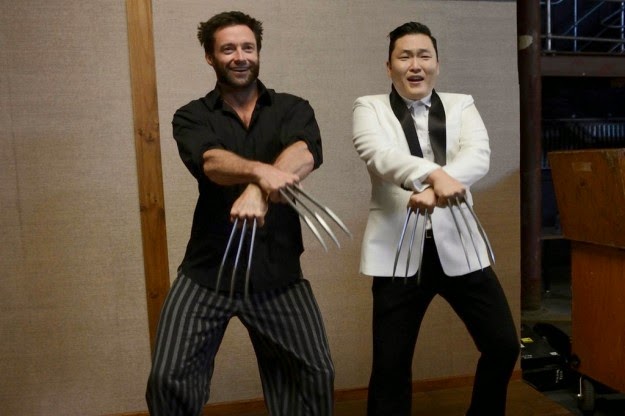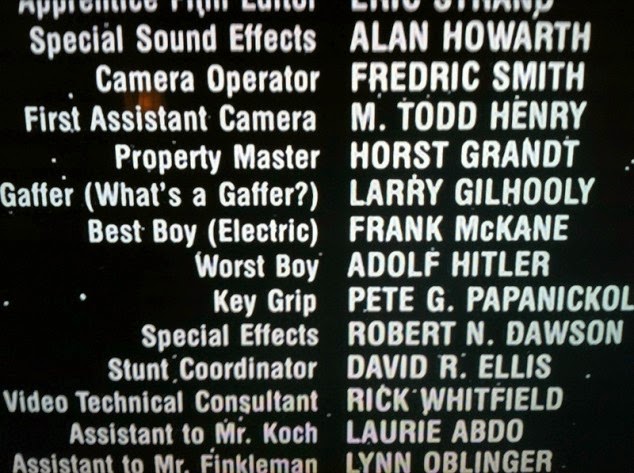At the recent X-Men movie I did something rare: I sat through the entire end credits so I could see the teaser trailer for the next movie.
As any casual moviegoer knows, the post-film credits are not only running longer than ever before, but are approaching ridiculous lengths.
Anyone who has any role in a movie’s production — down to the caterer who served food to the extras — now gets screen credit.
To some extent I’m a bit appalled at who gets to have their name listed — clearly it’s standard operating procedure to demand it when you’re hired to do any kind of work on a movie (or as David Mamet puts it in State and Main, they’ll even give a horse an associate producer credit).
But before I talk about why this practice tilts me, there are benefits to it. Specifically, it reminds us that movies are a collaborative endeavor despite the outsized focus that is placed on the actors, often but not always the director, and sometimes the screenwriter.
Unlike a lot of other forms of entertainment, the technical demands of filmmaking are so great that there’s a limit to how much a single person’s vision (or a few) can really propel a movie to completion. Or to look at it another way, auteur theory is a bit of a romantic notion. (What really happens is that a director works with the same crew over and over again.)
That being said, a lot of the people listed in the credits bring absolutely no creative input to a movie — they’re not independently making decisions that affects what we see on screen. They are given a specific task to perform and have to do it within very strict parameters.
For example, The X-Men credits listed the names of all of the plasters that worked on the movie. I don’t mean to knock this profession, but in their capacity on this job, all they’re doing and all they’re allowed to do are follow someone else’s strict instructions. Or consider the legions of computer graphic artists that account for a lot of the bloat in recent movie credits.
 |
| Before finding music success, Psy was credited as Hugh Jackman’s Claw Choreographer on X-Men 3: The Last Stand |
In my view, giving these people credit would be like having Rodin acknowledge all the workers involved in the bronze casting process for his sculptures, or Rembrandt crediting who made his canvasses, oil paints, paintbrushes, easels, and any other equipment he utilized in making a painting.
My bottom line is that if you’re essentially performing a work for hire job rather than being engaged in a positions where you have the freedom to shape some aspect of the movie without having to get someone’s signoff (except for maybe the director or producer), then you shouldn’t have your name listed.
Maybe this seems extreme, but if you’re not going to hold the line here, then why not give credit the janitorial staff who cleans up the sound stages each night? They’re performing as vital a task in the making of a movie as the people who cook the lunches.
If the credits focused just on the essential moviemakers, then we could go back to having all of the credits before the movie. The elegance of the longer pre-credit sequences that were usual in movies until about the 1970s was that everyone who deserved screen credit got it before the movie began — they audience was forced to acknowledge the role of these collaborators. One of the main reasons a handful of people are disproportionately signaled out for their role in the making of a movie is because they’re one of the few who gets the privilege to be listed here.
The roughly two to three minutes allotted for this doesn’t leave room for many people, especially when any actor with a speaking role has to be listed. There are a lot of important second tier staff, like the second unit team and camera operators, who never get the credit they deserve because they are pushed to the end credits.
What we desperately need is another Naked Gun movie to mock just how out of control things have gotten.
Back then, they listed one of the producers’ divorce attorneys; today, that doesn’t seem out of the realm of possibility.













































































































2 Comments